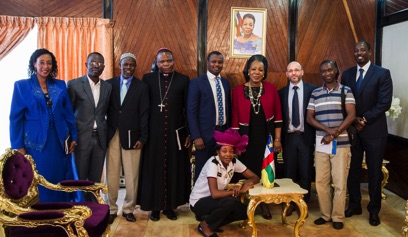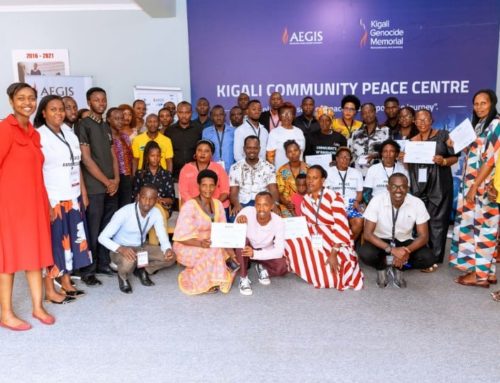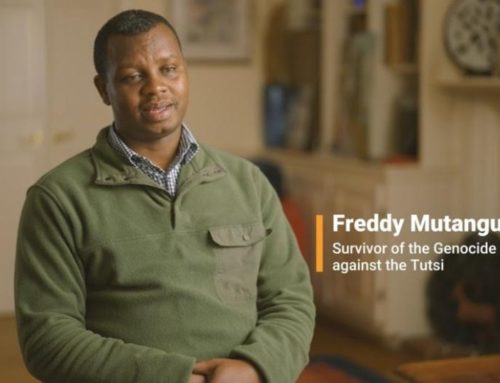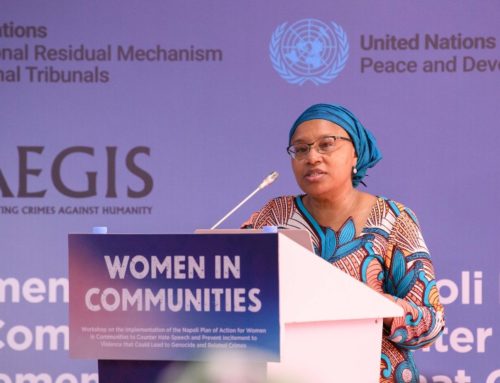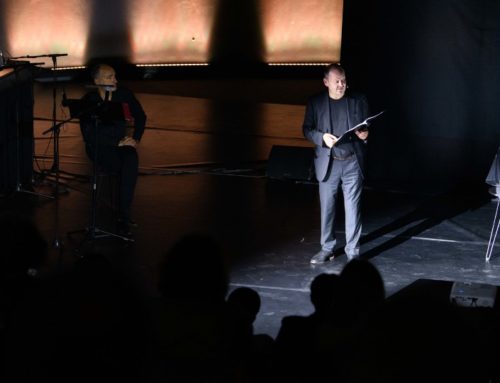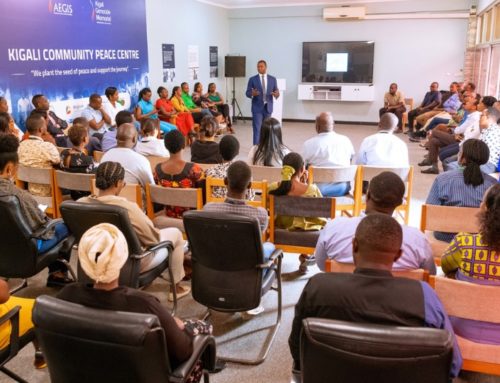At the invitation of faith leaders in the Central African Republic who took part in the August peace conference in Kigali, the Aegis Trust has just visited CAR to meet with community leaders and Government ministers – including interim President Catherine Samba Panza – to explore ways in which lessons from Rwanda could be applied to strengthen peacebuilding and the restoration of social cohesion in the country. (Click here for a short film of the visit, made by journalist Jonathan Saruk.)
Over 5,000 civilians have been killed and hundreds of thousands driven from their homes as a result of violence involving the mainly Muslim Seleka militia attacking the majority Christian population and subsequent atrocities by ‘Anti-Balaka’ Christian militia attacking Muslims. It is estimated that around 85% of CAR’s Muslims are now displaced.
Father Jonas Bekas, at the Church of Fatima in CAR’s capital Bangui, witnessed the shooting of some of his congregation by Seleka gunmen in May 2014. “There is hatred inside,” he told the Aegis delegation visiting CAR. “We cannot talk about forgiveness now. People, they tell us [this]. Frankly. Openly.”
The Aegis delegation was led by CEO Dr James Smith, together with Freddy Mutanguha, Aegis’ Country Director in Rwanda. “For me, visiting CAR was the biggest flashback to Kigali 1994,” says Freddy. “The lack of joy, lack of hope, lack of life and most of all the fear you see in people’s eyes – it’s the same,” he said. “Everywhere we went, people were telling us, it’s not only physical weapons that are the problem: we are already armed in our hearts. UN peacekeepers can help with outward disarmament, but we need Aegis to help with disarming the heart.”
On 13 September, Aegis joined leaders from the Government and religious communities for a peace conference in Bangui (delegation pictured in conversation at the conference with Cyriaque Gonda, Minister of National Reconciliation, and Desire Zanga Kolingba, Minister of Youth).
“When the Seleka started advancing towards Bangui to take over power, it wasn’t to defend either the Koran or the Muslim community. This crisis has nothing to do with religion,” says Imam Oumar Kobine Layama. “Unfortunately, some people are hiding behind their selfish interests in order to tear us apart and push us to kill each other.”
“The wounds of this crisis are still open. How do we religious leaders bring people together and help to heal their wounds?,” asks Rev. Nicolas Guerekoyame-Gbangou, President of the Evangelical Alliance, CAR. “That is why we think that the contribution of Aegis Trust will be very important to help us getting out of this crisis.”
“Now that Aegis Trust is here, it is a beginning,” says Mgr. Dieudonne Nzapalainga, Archbishop of Bangui. “We hope that sometime soon, Aegis will help organise a programme focussed on bringing back social cohesion to CAR.”
’Twenty years from now, people will ask what the international community did,” says Aegis’ CEO Dr James Smith. “Those in the international community, including ourselves, may have to answer for some of that. Despite all the violence and the killing and the threat and the insecurity, there’s a huge amount of opportunity and hope here.”
“The day of peace will come; a peace in people’s hearts, a peace in people’s spirit, a peace in people’s families,” says President Catherine Samba Panza. “In order for it to happen all of us must work together; women, youth, children, old people, Central Africans, Africans. Together we can fight for all Central Africans to live in peace.”

